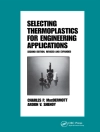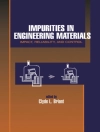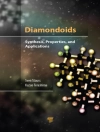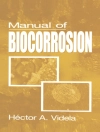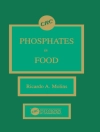This timely and comprehensive text focuses on important recent advances in applied sustainability in the baking industry, connecting all the current methods and strategies into a single book. Those involved in bread production will find the latest developments at the theoretical and practical levels, including information and communication requirements, reporting and regulatory aspects, economic and environmentally sustainable business models, supply chain management, life cycle assessment, product and organizational environmental footprints and more. For small bakery business owners to industry leaders and policymakers, governmental authorities, regulatory authorities and standardization bodies, this book offers a compilation of technical information about sustainability in the market for the bakery sector.
Baking Business Sustainability Through Life Cycle Management begins by presenting basic information on the life cycle assessment and product environmental footprint of the bread industry, proposing an analysis of sustainability assessment using environmental and social footprints and providing recommendations for integral optimization of economic and environmental performance. A second section focuses on sustainability in the baking industry, providing a regional focus from Europe to the Americas to Africa and beyond. The third section takes a deep look at economic feasibility and efficiency in the bread industry, including the economic viability of different scenarios for bread-based value chains, and forming efficient business models for bakeries. A final section zeroes in on the most up-to-date innovations in the current bakery industry, including the impact of bakery innovation on business resilience growth, commercial systems, and new business models in regional food systems for farmers and companies, based on multi-actor approach.
Innovations within the bakery industry are at an all-time high, with new sustainability and economic models being introduced, along with associated market risks. This timely and ambitious text aims to cover all the most recent advances and methods for successful incorporation into bakery businesses.
Tabela de Conteúdo
Chapter 1 Bread Industry Sustainability Life Cycle Assessment.- Chapter 2 Product Environmental Footprint and Bread Industry.- Chapter 3 Life Cycle Assessment and Product Environmental Footprint – recommendations for integral optimization of economic and environmental performance.- Chapter 4 Ensuring sustainability of baking industry in North Macedonia.- Chapter 5 Sustainability approach of the baking industry along the food supply chain.- Chapter 6 Sustainability assessment of the baking industry complying with standards requirements: a case of Romania.- Chapter 7 Across American overview on sustainability approach throughout baking industry: An analytical-descriptive approach.- Chapter 8 Asian Overview on Sustainability Approach in Baking Industry.- Chapter 9 African Experience in Ensuring Sustainability in Baking.- Chapter 10 Indian experience in ensuring sustainability in baking industry.- Chapter 11 Measuring Baking Business Performance.- Chapter 12 Forming the efficient business model for bakery.- Chapter 13 Assessment of the sustainable competitiveness of agricultural enterprises on the grain market: case of Ukraine.- Chapter 14 Economic viability and sustainability in baking industry/ Simeuna – bread producer with own grain production.- Chapter 15 Impact of Bakery Innovation on Business Resilience Growth.- Chapter 16 Innovation in the commercial system of the small bakery industry.- New business models in food systems for farmers and companies, based on multi-actor approach.- Chapter 18 The role of rural women in bread industry – Job creation and retention in rural areas.
Sobre o autor
Dr. Joao Miguel Ferreira da Rocha is a scientist at the Universidade Católica Portuguesa, CBQF – Centro de Biotecnologia e Química Fina – Laboratório Associado, Escola Superior de Biotecnologia, Porto, Portugal
Dr. Aleksandra Figurek is a scientist at the GNOSIS Mediterranean Institute for Management Science, School of Business, University of Nicosia, Cyprus
Dr. Anatoliy G. Goncharuk is Full Professor in the Hauge School of Management at NLA University College, Kristiansand, Norway.
Dr. Alexandrina Sirbu is Full Professor at Constantin Brancoveanu University of Pitesti, Faculty of Management Marketing in Economic Affairs in Ramnicu Valcea, Romania.


